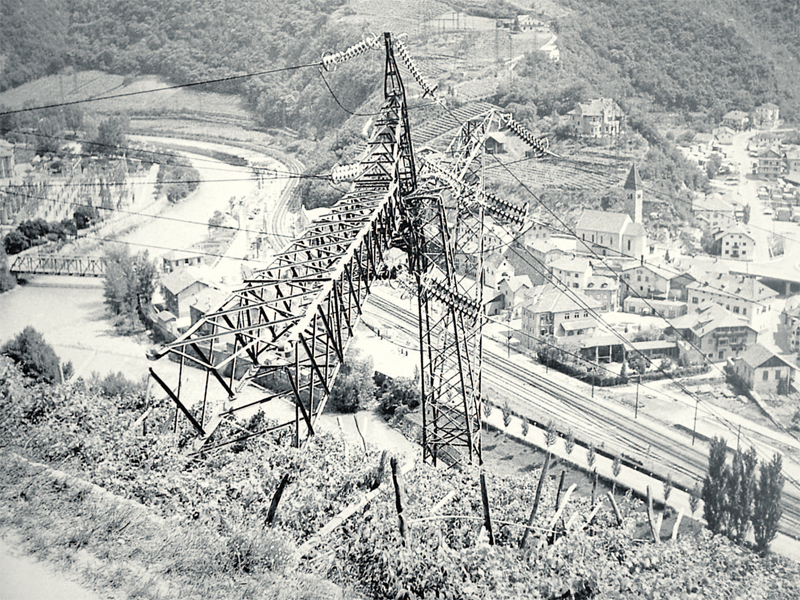By Reinhard Olt
A coach leaves Innsbruck. The inmates go on an “excursion” to Verona. “Pro arte et musica” is the name of her program, to which she takes Günther Andergassen, university professor at the Salzburg Mozarteum, with her. But they are no ordinary day trippers, their trip on June 10, 1961 serves as camouflage. Herlinde Molling, who on that day chauffeured her sports coupé with the Munich license plate M ‑ LE 333 south to meet her husband Klaudius, who belongs to the said travel group, in Vilpian, a place between Bolzano and Merano, is not either really for pleasure on the go. She transports explosives in the trunk. The “excursion participants” also carry explosives with them in rucksacks. In alpine huts, forest clearings.
Donarit and time fuse
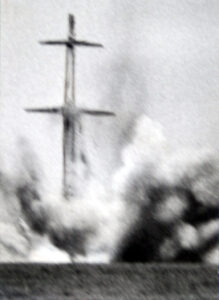 On the late evening of June 11th, Luis Steinegger left his courtyard and took hold of the Donarit, which was kept in a cave above Tramin and brought by one of the excursion participants. With his friend Oswald Kofler, he prepares two electricity pylons in Altenburg. They fasten the explosives, put the fuse loosely around the steel girders. Then the self-made time fuse is armed. The clock in the village church strikes ten times when Steinegger turns the fuse on. Exactly at one o’clock the charges detonate, the electricity pylons collapse. The same thing in Sinich near Merano, where Sepp Innerhofer uses binoculars from Schenna to watch the masts he has “loaded” buckle like matches under an echoing roar. At the same time in Bolzano, too, a loud bang breaks through the nocturnal calm. The thunder-like rumble, followed by further detonations, wakes many from their sleep. Between one and three thirty there is a flash and bang around the Bozen basin, steel monsters crash to the ground. (Eyewitness reports from the book “Südtirol 1961, Herz Jesu-Feuertacht …” by Birgit Mosser-Schuöcker and Gerhard Jelinek, published in 2011 by Tyrolia-Verlag in Innsbruck)
On the late evening of June 11th, Luis Steinegger left his courtyard and took hold of the Donarit, which was kept in a cave above Tramin and brought by one of the excursion participants. With his friend Oswald Kofler, he prepares two electricity pylons in Altenburg. They fasten the explosives, put the fuse loosely around the steel girders. Then the self-made time fuse is armed. The clock in the village church strikes ten times when Steinegger turns the fuse on. Exactly at one o’clock the charges detonate, the electricity pylons collapse. The same thing in Sinich near Merano, where Sepp Innerhofer uses binoculars from Schenna to watch the masts he has “loaded” buckle like matches under an echoing roar. At the same time in Bolzano, too, a loud bang breaks through the nocturnal calm. The thunder-like rumble, followed by further detonations, wakes many from their sleep. Between one and three thirty there is a flash and bang around the Bozen basin, steel monsters crash to the ground. (Eyewitness reports from the book “Südtirol 1961, Herz Jesu-Feuertacht …” by Birgit Mosser-Schuöcker and Gerhard Jelinek, published in 2011 by Tyrolia-Verlag in Innsbruck)
State of emergency, imprisonment, torture, death
On the morning of June 12th, the “Sunday of the Sacred Heart”, the extent of what the “night of fire” caused becomes evident: 37 high-voltage pylons, eight railway masts and two high-pressure water pipes leading to power stations have blown up: an effective conspiratorial community action of the “Liberation Committee South Tyrol” (BAS) with the aim of damaging Italy as much as possible while protecting people and private property. The world public should be made aware of the South Tyrol problem and pressure should be exerted on the Italian state power, which is perceived as an occupation regime. About 200 activists from both parts of Tyrol belong to the BAS: “We demand the right to self-determination for South Tyrol! (…) Europe and the world will hear and recognize our emergency cry, that the South Tyroleans’ struggle for freedom is a struggle (…) against tyranny. ”But their call to struggle only receives broader support when the population directly senses Rome’s reaction to the night of fire: it imposes a state of emergency over the province, the entire IV. Army corps – 24,000 soldiers – and an additional 10,000 carabinieri – barracked police forces – are relocated to South Tyrol. Most of the South Tyrolean BAS members will be detained until the end of July, including Sepp Kerschbaumer, her head. His colleagues Franz Höfler and Anton Gostner succumb to cruel torture in the Carabinieri barracks in Eppan. Only now is there a wave of active solidarity. Also from the political side in Austria. “But their call to fight only received broader support when the population felt Rome’s reaction to the night of fire: it imposed a state of emergency on the province, the entire IV Army Corps – 24,000 soldiers – and an additional 10,000 Carabinieri – barracked police forces – are relocated to South Tyrol. Most of the South Tyrolean BAS members will be detained until the end of July, including Sepp Kerschbaumer, her head. His colleagues Franz Höfler and Anton Gostner succumb to cruel torture in the Carabinieri barracks in Eppan. Only now is there a wave of active solidarity. Also from the political side in Austria. “But their call to fight only received broader support when the population felt Rome’s reaction to the night of fire: it imposed a state of emergency on the province, the entire IV Army Corps – 24,000 soldiers – and an additional 10,000 Carabinieri – barracked police forces – are relocated to South Tyrol. Most of the South Tyrolean BAS members will be detained until the end of July, including Sepp Kerschbaumer, her head. His colleagues Franz Höfler and Anton Gostner succumb to cruel torture in the Carabinieri barracks in Eppan. Only now is there a wave of active solidarity. Also from the political side in Austria. it imposes a state of emergency on the province, the entire IV Army Corps – 24,000 soldiers – as well as an additional 10,000 carabinieri – barracked police forces – are relocated to South Tyrol. Most of the South Tyrolean BAS members will be detained until the end of July, including Sepp Kerschbaumer, her head. His colleagues Franz Höfler and Anton Gostner succumb to cruel torture in the Carabinieri barracks in Eppan. Only now is there a wave of active solidarity. Also from the political side in Austria. it imposes a state of emergency on the province, the entire IV Army Corps – 24,000 soldiers – as well as an additional 10,000 carabinieri – barracked police forces – are relocated to South Tyrol. Most of the South Tyrolean BAS members will be detained until the end of July, including Sepp Kerschbaumer, her head. His colleagues Franz Höfler and Anton Gostner succumb to cruel torture in the Carabinieri barracks in Eppan. Only now is there a wave of active solidarity. Also from the political side in Austria. His colleagues Franz Höfler and Anton Gostner succumb to cruel torture in the Carabinieri barracks in Eppan. Only now is there a wave of active solidarity. Also from the political side in Austria. His colleagues Franz Höfler and Anton Gostner succumb to cruel torture in the Carabinieri barracks in Eppan. Only now is there a wave of active solidarity. Also from the political side in Austria.
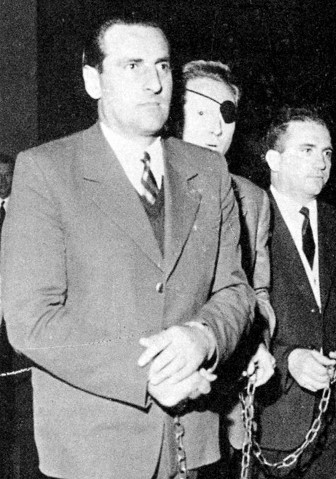 What drives the “fuckers”, as the assassins are still popularly called today? They want to set a striking example to draw the world’s attention to the unbroken neo-colonialist behavior of Rome. The southern part of Tyrol is Italy’s spoils of war, reward for breaking out of the Triple Alliance (with the German Empire and Austria-Hungary) at the beginning of the First World War, initially as a “neutral”, and around 1915 on the side of the Entente powers England and France enters the war as an ally. Before the fall of the Austro-Hungarian dual monarchy, it was – like “Welschtirol” (Trentino) for five centuries part of the “princes of Tyrol” and thus the Habsburg Crown Land. After the peace dictate of Saint-Germain-en-Laye (10. September 1919) the Kingdom of Italy incorporated the country up to the Brenner on October 10, 1920. When Mussolini came to power in 1922, the “Alto Adige” (“Hochetsch”) is to be de-German and culturally Italianized. The Roman administrative system is introduced and the Italian language is declared the only official language and the language of instruction. As a result of the targeted settlement of companies and employees from old Italy, the number of ethnic Italians in South Tyrol tripled by 1939. Finally, the dictators Mussolini and Hitler, “axis partners” in the war that soon followed, agree to the so-called option agreement: with this they force the South Tyroleans to either decide for “the Reich” and leave their homeland, or to stay and merge with the Italianità .
What drives the “fuckers”, as the assassins are still popularly called today? They want to set a striking example to draw the world’s attention to the unbroken neo-colonialist behavior of Rome. The southern part of Tyrol is Italy’s spoils of war, reward for breaking out of the Triple Alliance (with the German Empire and Austria-Hungary) at the beginning of the First World War, initially as a “neutral”, and around 1915 on the side of the Entente powers England and France enters the war as an ally. Before the fall of the Austro-Hungarian dual monarchy, it was – like “Welschtirol” (Trentino) for five centuries part of the “princes of Tyrol” and thus the Habsburg Crown Land. After the peace dictate of Saint-Germain-en-Laye (10. September 1919) the Kingdom of Italy incorporated the country up to the Brenner on October 10, 1920. When Mussolini came to power in 1922, the “Alto Adige” (“Hochetsch”) is to be de-German and culturally Italianized. The Roman administrative system is introduced and the Italian language is declared the only official language and the language of instruction. As a result of the targeted settlement of companies and employees from old Italy, the number of ethnic Italians in South Tyrol tripled by 1939. Finally, the dictators Mussolini and Hitler, “axis partners” in the war that soon followed, agree to the so-called option agreement: with this they force the South Tyroleans to either decide for “the Reich” and leave their homeland, or to stay and merge with the Italianità .
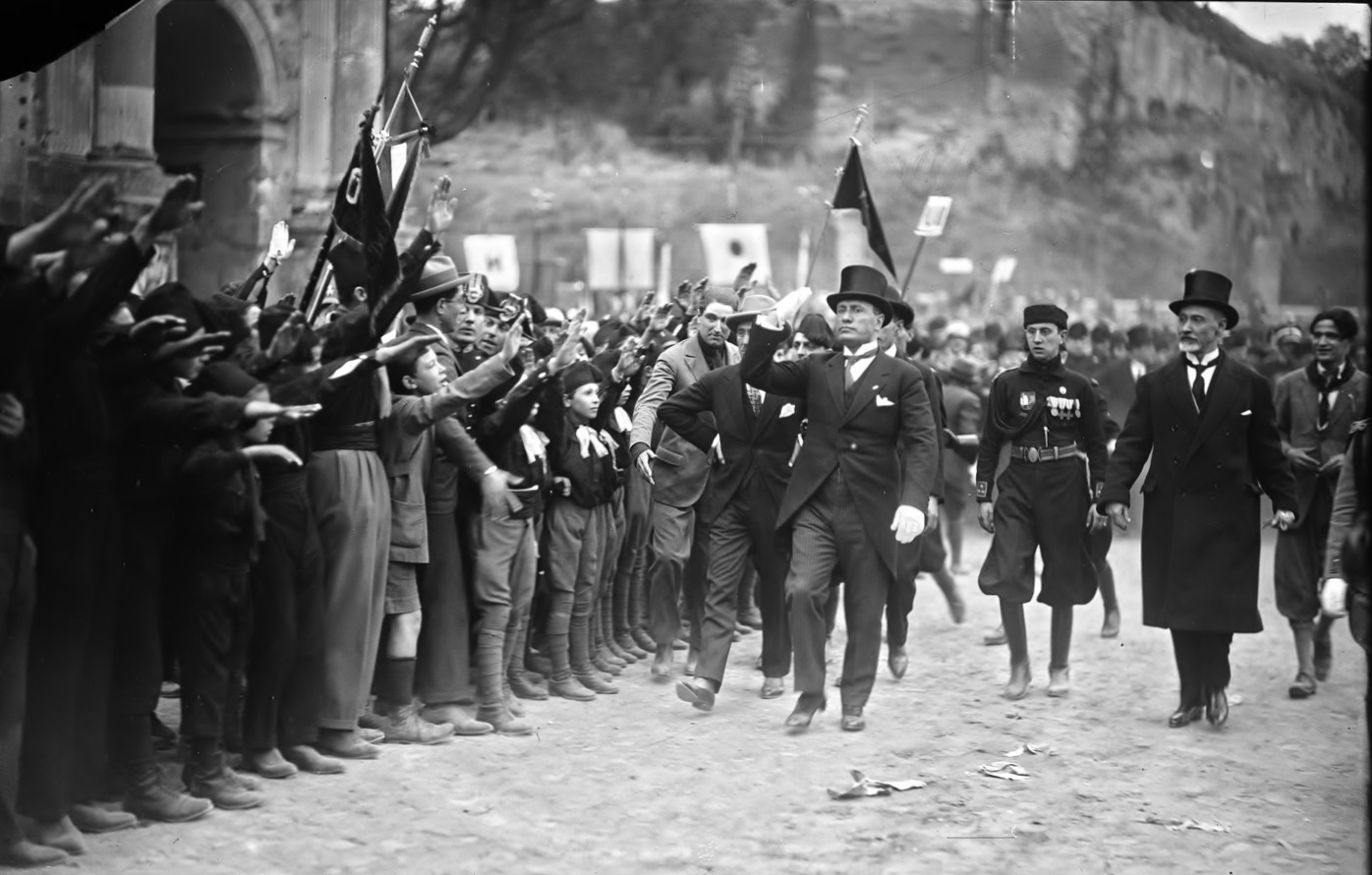
The falsified autonomy
After the Second World War, the Allies rejected the reclassification of South Tyrol to Tyrol and the re-established Austria, as requested by more than 175,000 signatures collected in secret and handed over to Chancellor Leopold Figl in Innsbruck. An agreement concluded between Foreign Minister Karl Gruber and the Italian Prime Minister Alcide de Gasperi in Paris in September 1946 granted the residents of the province of Bolzano extensive linguistic and cultural rights and a certain degree of self-government. But Rome takes this agreement to absurdity in the first Statute of Autonomy of 1948 by stipulating its validity for the region of Trentino-Alto Adige, in which the two neighboring provinces are united and the South Tyroleans are dominated by the dominance of the ethnic Italians of Trentino. Against and against the settlement of southern Italians, which was continued uninterruptedly in colonial rule by democratic Italy – in new residential and industrial projects – they turn in the “Los von Trient” movement initiated by the legendary Governor Silvius Magnago. The 1950s and 1960s are therefore filled with rebellion against Roman politics. The forerunner of the BAS is the “Gruppe Stieler”; it also adheres strictly to the commandment “violence only against things”. Against and against the settlement of southern Italians, which was continued uninterruptedly in colonial rule by democratic Italy – in new residential and industrial projects – they turn in the “Los von Trient” movement initiated by the legendary Governor Silvius Magnago. The 1950s and 1960s are therefore filled with rebellion against Roman politics. The forerunner of the BAS is the “Gruppe Stieler”; it also adheres strictly to the commandment “violence only against things”. Against and against the settlement of southern Italians, which was continued uninterruptedly in colonial rule by democratic Italy – in new residential and industrial projects – they turn in the “Los von Trient” movement initiated by the legendary Governor Silvius Magnago. The 1950s and 1960s are therefore filled with rebellion against Roman politics. The forerunner of the BAS is the “Gruppe Stieler”; it also adheres strictly to the commandment “violence only against things”. The forerunner of the BAS is the “Gruppe Stieler”; it also adheres strictly to the commandment “violence only against things”. The forerunner of the BAS is the “Gruppe Stieler”; it also adheres strictly to the commandment “violence only against things”.
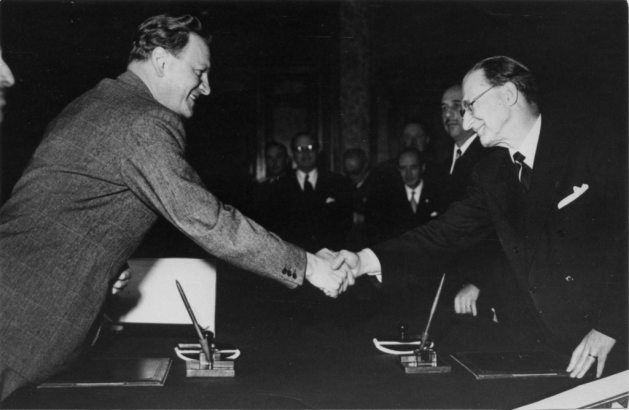
Nevertheless, the day after the “night of the fire”, unfortunate circumstances make the first victim; An Italian road attendant discovered near (the provincial and linguistic border on the isthmus of Salurn) a non-detonated explosive device on a mighty tree, with which the tree was to be felled and the road connection to Trento was to be clearly interrupted, which kills him during his attempt to remove it. As a result of later attacks, a total of 25 people died on both sides. More recent research has shown, however, that not a few of these were caused by conspiratorial attacks with significant involvement of Italian intelligence officers and the Italian branch “Gladio” of the covertly operating NATO secret organization “Stay Behind”.
150 BAS activists are caught, some managed to escape and continue their activities from North and East Tyrol. In the 1963 Milan explosives trial against 94 defendants (87 from South Tyrol, 6 from Austria, one from the Federal Republic), long-term imprisonment terms are mostly pronounced. Six months later, Sepp Kerschbaumer dies in a Verona prison; 15,000 South Tyroleans follow his coffin.
Much has happened in South Tyrol since that “night of fire”. On the basis of two United Nations (UN) declarations, to which the then Austrian Foreign Minister Bruno Kreisky presented the South Tyrol conflict, a solution was finally found in tough negotiations between Rome, Bolzano and Vienna in the form of a new statute of autonomy that had been in place since 1945 Dominant South Tyrolean People’s Party (SVP) approved with a narrow majority in 1969. Combined with “package measures” and “implementing provisions”, the implementation of which is repeatedly delayed due to Roman feint, the conflict with the “declaration of dispute settlement” against Italy submitted by the protective power Austria to the UN was only resolved in 1992 under international law. Today the Provincia autonoma di Bolzano – Alto Adige Autonomous Province of Bozen-Südtirol is one of the prosperous areas of Italy and beyond, which is why those who are satisfied with the prevailing conditions, in which they settled down more or less comfortably, and they, like everything Apparently the current leadership of the still ruling majority party SVP – and with it all parliamentary parties of the “Fatherland Austria” except the opposition FPÖ – see it as a political and legal final state and propagate it as a “model for the peaceful settlement of minority conflicts”. All other South Tyrolean German and Ladin tongues, the German-South Tyrolean opposition anyway,
No “end of the story”
Does the “night of fire” have a political meaning and an impact on the future? Magnago and the closer SVP leadership always rejected attacks as principally reprehensible acts. Just like Austrian politicians from the experience generation, they denied having known about their preparation or had anything to do with the activists or even worked together. In this generality, however, this can be questioned, because we know today that and which personalities in North Tyrol, in other Austrian federal states, also in neighboring Bavaria as well as in the Bonn politicians at that time and of course also in South Tyrol stood behind them, if not their actions expressly approved so nevertheless with sympathy – and occasionally even beyond the ideal – accompanied. Later it was said that the attacks were to be seen as an “impetus for changing the Italian South Tyrolean policy”, which ended with the “package solution” of 1969 and the second statute of autonomy of 1972. This was ultimately due to those who, with the commitment of their lives, made a significant contribution to preserving the homeland from Italy’s fait accompli, namely leveling, denationalizing assimilation. Magnago once said that the attacks “made a significant contribution to achieving better autonomy for South Tyrol”. who, with the commitment of their lives, made a significant contribution to preserving their homeland from Italy’s fait accompli, namely leveling, denationalizing assimilation. Magnago once said that the attacks “made a significant contribution to achieving better autonomy for South Tyrol”. who, with the commitment of their lives, made a significant contribution to preserving their homeland from Italy’s fait accompli, namely leveling, denationalizing assimilation. Magnago once said that the attacks “made a significant contribution to achieving better autonomy for South Tyrol”.
But autonomy as a state and value in and of itself, as Magnago’s political grandchildren almost absolute absolute within and outside of his SVP, because it pays off their pleasing majority of self-deceptive satisfaction and favors the compromising arrangement with Rome as well as the creeping italophilia, or even as a kind Looking at the “end of history”, as quite a few members of the Austrian political class – despite all their Sunday speeches about the “South Tyrolean affair of the heart” – the freedom fighters did not want to. Neither those whom the Italian state power got hold of in 1961 and in the years after, condemned them as “terrorists” and even smashed some to death; nor those who escaped and were sentenced to life imprisonment for life or several years in violation of human rights in their absence and who have not seen their homeland since then. And certainly not all those who continue to be connected to them and their goals today and in the future and who feel consistently committed to their legacy on both sides of the Brenner Pass.
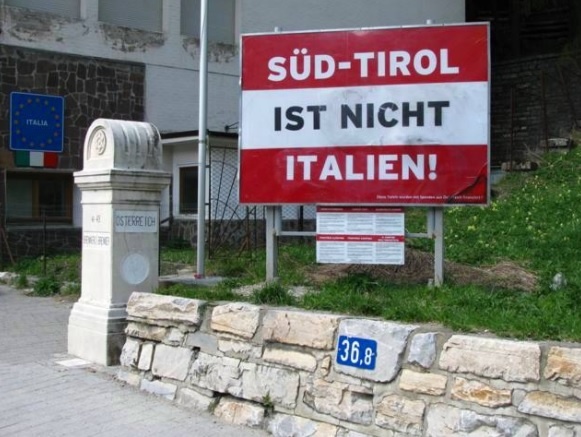
Self-determined “Away from Rome”
Their goal was and remains self-determination, the ideal, material, political-legal “Away from Rome”. For what purpose and in what form regulated by international or constitutional law, whether as an autonomous territory with cultural sovereignty, jurisdiction and police power with the greatest possible character of statehood, whether as a condominium administered jointly by Austria and Italy with individual rights, whether as complete independent sovereign small state, whether as the tenth federal state of Austria or whether reunified with the federal state of Tyrol and Austria, is and will remain open. It must be clear, however, that only those who asked neither in 1918/19 nor 1945/46 have to decide about southern Tyrol and its future

